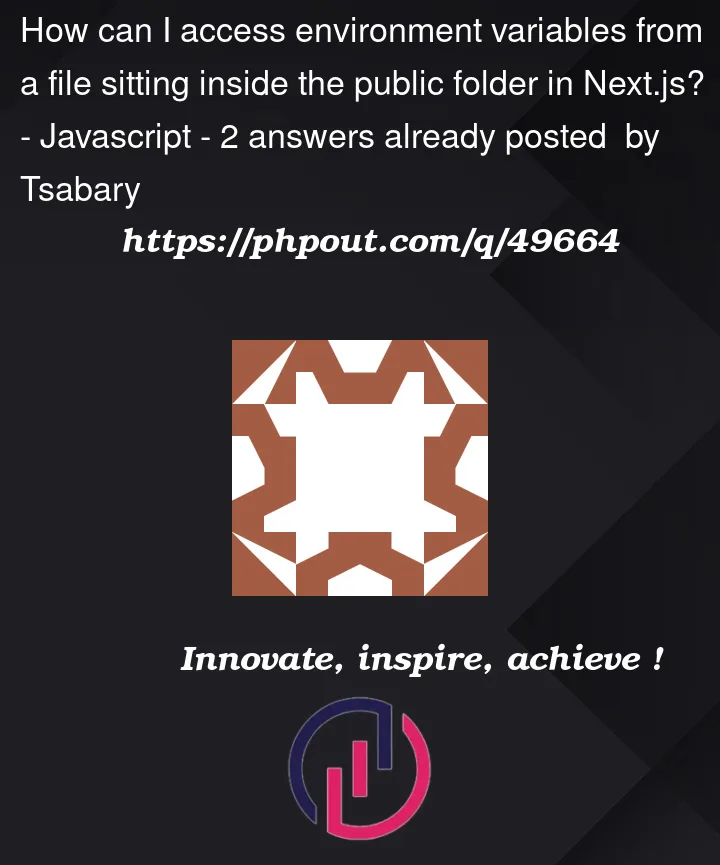I’m integrating Firebase Cloud Messaging, and it is required to have firebase-messaging-sw.js file inside the public folder as a service worker.
The file needs to have my firebase config, which I of course want to hide the details of in environment veriables. I have the object defined as such:
const firebaseConfig = {
apiKey: process.env.NEXT_PUBLIC_FIREBASE_API_KEY,
authDomain: process.env.NEXT_PUBLIC_FIREBASE_AUTH_DOMAIN,
projectId: process.env.NEXT_PUBLIC_FIREBASE_PROJECT_ID,
storageBucket: process.env.NEXT_PUBLIC_FIREBASE_STORAGE_BUCKET,
messagingSenderId: process.env.NEXT_PUBLIC_FIREBASE_MESSAGING_SENDER_ID,
appId: process.env.NEXT_PUBLIC_FIREBASE_APP_ID,
measurementId: process.env.NEXT_PUBLIC_FIREBASE_MEASUREMENT_ID,
};
But now when I give permissions for notifications and it tries to register the service worker, I got the error: caught ReferenceError: process is not defined.
I have the variables defined in a .env.local file, and I’ve been using these same variables in my app in other places successfully.
How can I access them from a file in the public folder?




2
Answers
You need to prefix your environment variable with
NEXT_PUBLIC_in order for them to work in a file in the public directory.As quoted from documentation,
You don’t access the process.env in your public file, rather you pass its value to the public file at build time as per the documentation example.
So, you import a setup function from your public folder file that sets the environment variables values at built time, on your public file code I assume you can name them whatever you like, you don’t use
process.envas the environment variables are of course not available for the browser.So, then the significance of the prefix
NEXT_PUBLIC_is just to be able to access the process env variables values in the Next react/typescript client side code, not in the public folder JavaScript files themselves, (the stress on the values of environment variables because you can’t access actual web server process, that’s why dynamic lookups don’t work as stated in the docs)Files in the public folder in nextjs don’t go through the webpack build process hence why
process is undefined.To use environment variables in your
firebase-messaging-sw.jsfile, check the steps below.First, create a
.env.localfile, skip this step if you already have it.Install the
dotenvpackage withnpm i dotenv, will we use it to load the environment variables.Create a file called
swEnvBuild.jsin the root directory.In
swEnvBuild.jsfile you just created, we will create a function that loads the.env.localfile and then writes the contents of the file into a new file in the public folder calledswenv.jsThen we import the file that will be generated from
swEnvBuild.jscalledswenv.jsin thefirebase-messaging-sw.jsfile.Finally, update your package.json.
After running
npm run dev, your environment variables should be accessible infirebase-messaging-sw.jsusingprocess.env